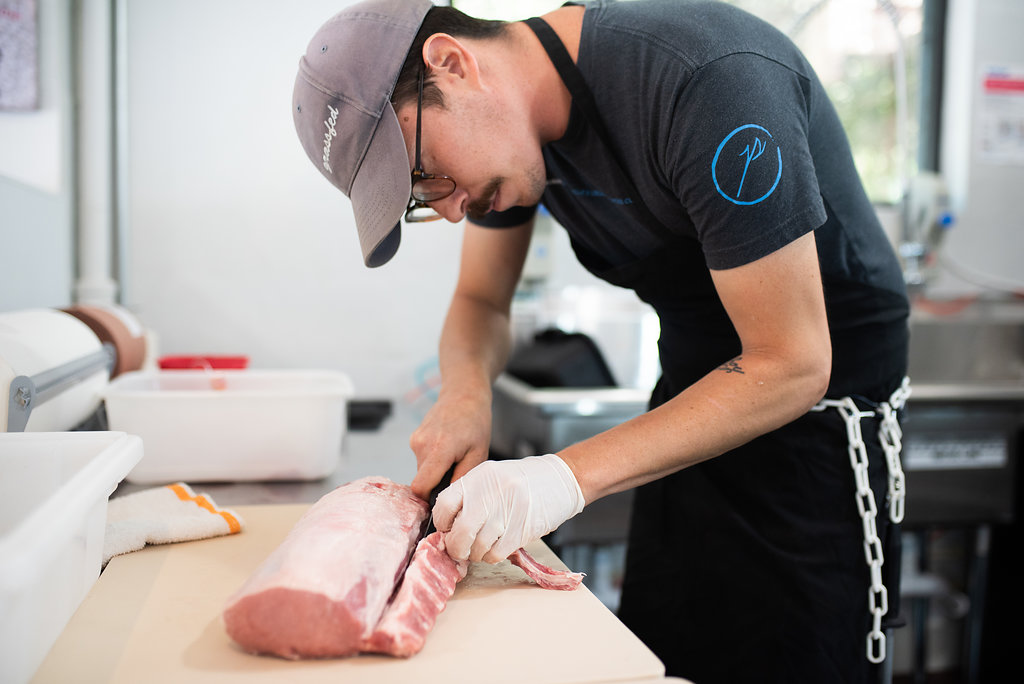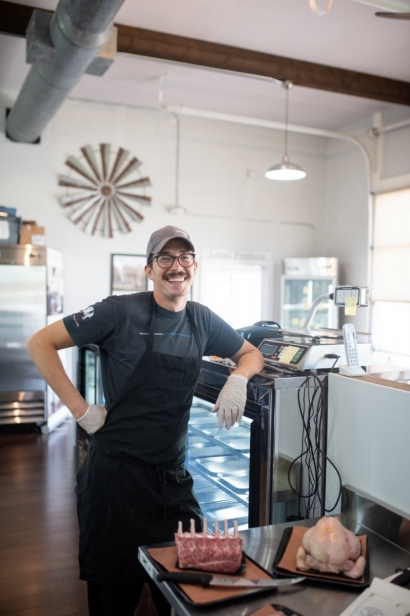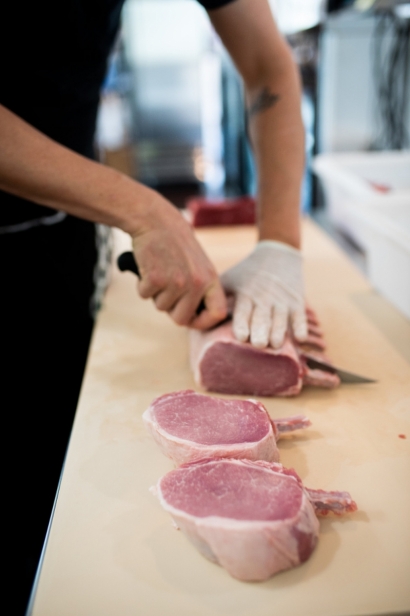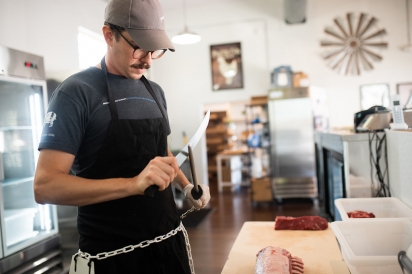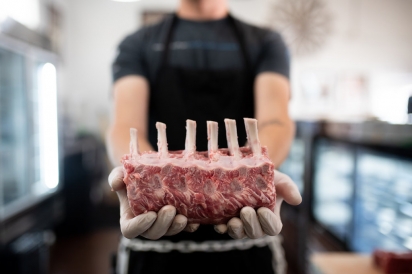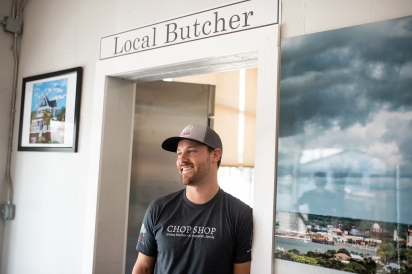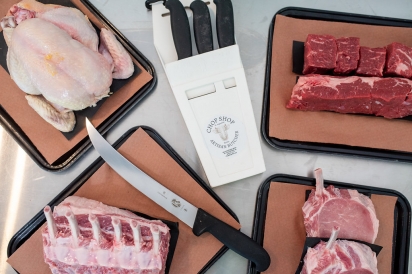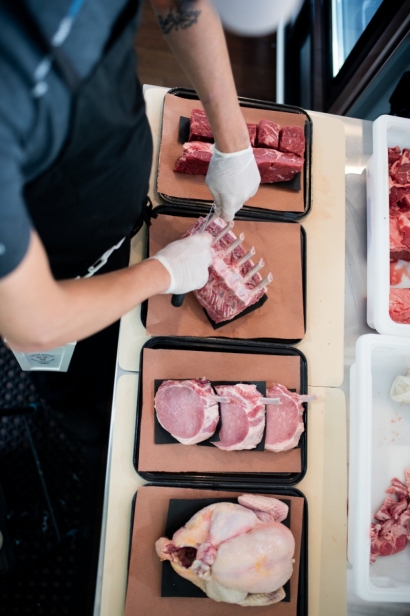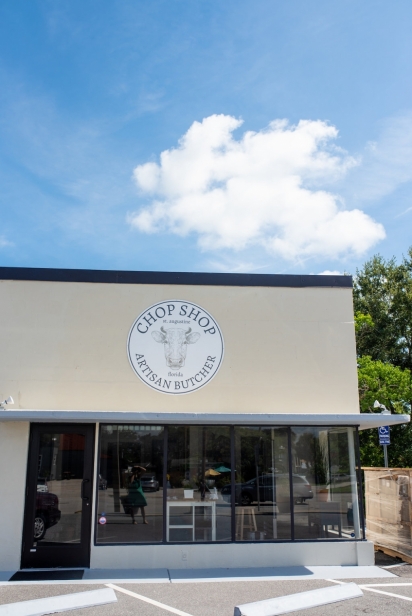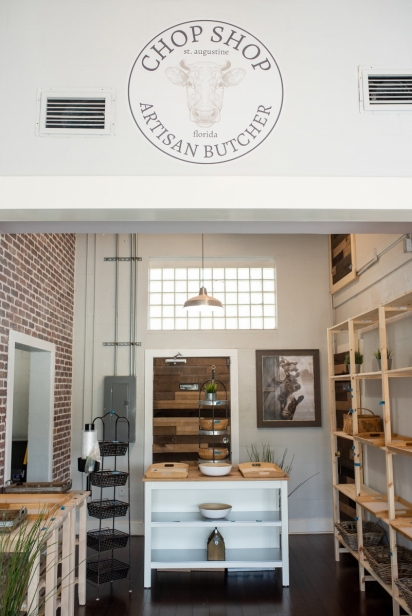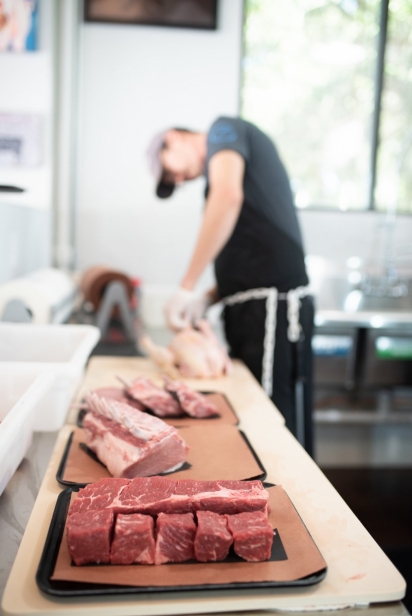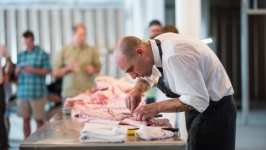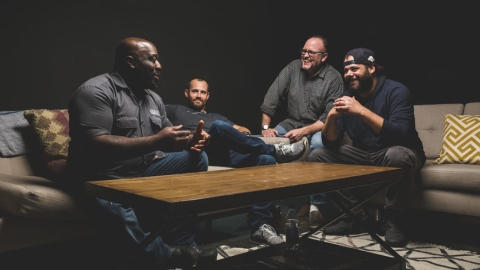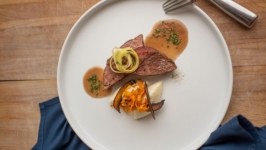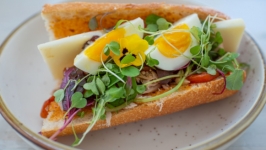The Right Cut
The supermarket continues to be deconstructed. Farmers’ markets, which paved a path for produce to reach the end user directly, have also provided access to livestock and butchers. Whereas meat departments at grocery chains are typically configured to allow customers to select pre-packaged cuts of meat, local butcher shops can create a closer connection between farm and customer, offering a wide array of underutilized products and an even better education about food sourcing. As consumer interest in knowing how food is grown and raised continues to expand, artisan butcher shops are increasingly becoming part of the connective tissue between farmers and consumers.
Chef Brian Whittington has helped strengthen this connection through his restaurant, Preserved, located in the heart of Lincolnville in St. Augustine. Early in his career, Whittington made a commitment to source locally grown produce and proteins. The overwhelmingly positive response to (and increasing demand for) the meat offerings led the chef and his team to set aside retail space near the dining area at Preserved.
As charcuterie and specific cuts of meats began to fly out the door, Whittington realized that his preparation staff was spending as much time stocking the retail side as they were stocking the kitchen. He knew that something had to give.
“The amount of time for charcuterie and meat prep became outlandish. Folks wanted to buy our meats and charcuterie, but my staff could barely keep up,” Whittington says. So, he proactively pursued a location he could dedicate to artisan butchery, alleviating the pressure on his prep staff along with providing his customers with the goods they craved.
Chop Shop, a new butcher market in St. Augustine, is the confluence of desire and circumstance for Chef Whittington.
“Ten years ago, I was hoping that things would go back to more of the basics. Folks were coming out of culinary school with the desire to get attention, but not really understanding the basics of a kitchen,” says Whittington, referring to the chasm between emerging chefs and kitchen techniques. For Whittington, new kitchen hires were too many steps removed from the source of the food being prepared. The hustling speed of the kitchen was creating a disconnect between the cook and what was being cooked.
Tony Philpott, Chop Shop head butcher agrees. “As a chef, you lose sight of what you’re making between the start of the process and the point where you are cooking,” Philpott says. “That’s where I got my interest in whole animal butchery.” Philpott has worked alongside Whittington for years in Northeast Florida. After a few stints in New York butcher shops, he returned to St. Augustine to help launch the Chop Shop. “I don’t think awareness is a trend. The community wants to know what it is eating and where it is coming from,” says Philpott.
Philpott also spent time working at slaughter houses in the Midwest to better connect to the production of the meats he was cooking. “Seeing that animal killed and processed from the beginning to the end makes a good butcher want to use as much as possible from that animal who gave its life. We as chefs need to focus on utilizing the whole animal,” Philpott says. He adds that knowledge of the entire cycle is important when working to build a trusting relationship with the customer. “A good butcher shop will have the livers and other organs on display to let you know that the butcher is respecting the animal and, in turn, respecting the customer.”
Vadim Akimenko also has plans underway to open a butcher shop in the Murray Hill area of Jacksonville. He has dedicated the better part of the last decade learning the art of whole animal butchery through lengthy stints at butcher shops in New England and in Germany. “The relationship between the butcher and the consumer is vital. The customer simply needs to know what they like and it’s our job as the butcher to fulfill the need,” Akimenko says.
Like other butchers entering the market, Akimenko is putting an emphasis on educating his customers on humane butchering practices and animal welfare. The name Dr. Temple Grandin comes up in many conversations about this topic. The Colorado State University professor pioneered humane slaughtering procedures three decades ago and revolutionized the slaughterhouse industry. It was not without challenges, but butchers like Akimenko and Philpott are ardent advocates and seek to interact with farms that use more humane approaches.
“It was (Dr.) Grandin that discovered that animals do not like to back up and encouraged two openings in the holding pens,” Akimenko says. “The chutes became more gradual and same-day slaughtering was eliminated.” He adds that the difference in processing is noticeable in the quality of the meat, as a stressed animal releases hormones that negatively affect the taste, texture and longevity of different cuts of meat. “You only want an animal to have one bad day, a farmer once told me,” Akimenko says.
Chef Whittington approaches butchering with a similar, conscientious approach. “Folks want the animals humanely raised and slaughtered, but still haven’t embraced using the whole animal. As a chef, I can sell you 60-70% of that animal, the other 30% you may not be aware that you can use,” Whittington says. For him and his team, guiding customers to new or lesser known cuts of meat can help customers understand availability and affordability. “People are open to trying new things. We don’t want to sell them as much as we want customers to understand cuts, seasonings and cooking temperatures.”
As for the prospective shops that each will open, Chef Whittington says a good butcher shop has a few good tells, with one being paramount. “A good butcher shop will smell fresh and clean. Trust your nose when you walk into a new butcher shop.”
“Ask the butcher, ‘are you making the charcuterie? Are you making the sausage?’ If the answer is no, then you may want to go somewhere where the butcher is respecting the whole animal.”
Along with an extensive selection of fresh meat products, Chop Shop also carries produce, pickled vegetables from Preserved Restaurant and a wide variety of cooking products. Find them at 600 Anastasia Boulevard, St. Augustine, (904) 907-1312.


